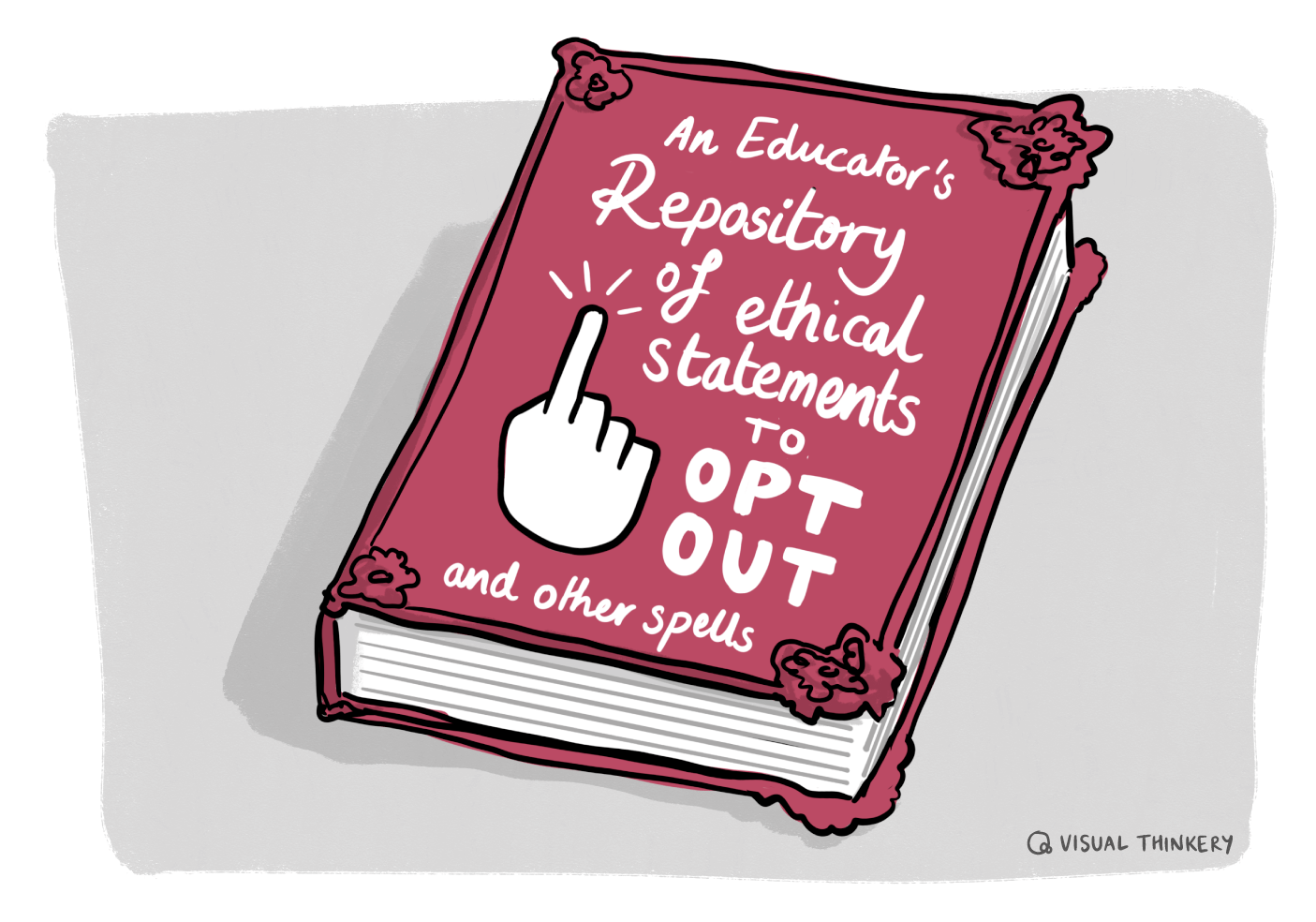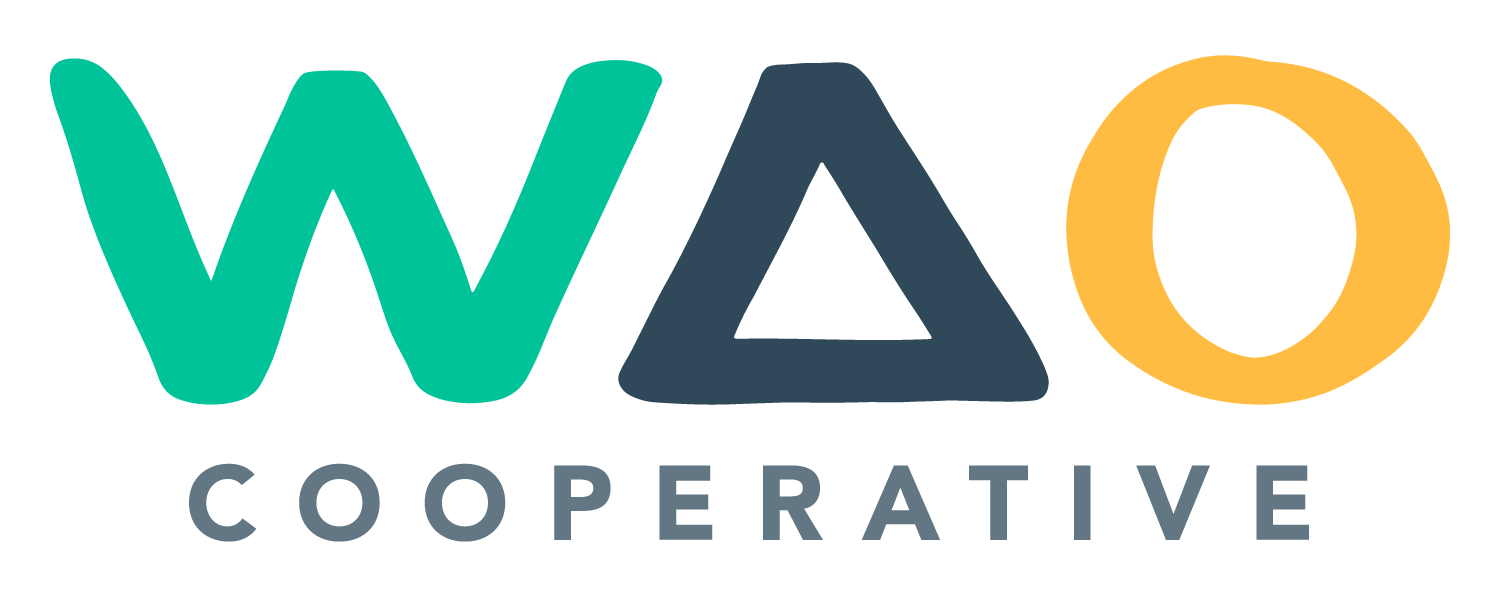Exploring AI's Role in Education: A Balanced Perspective from Six Think Pieces
Collaborating to respond to UNESCO’s call for think pieces

Collaborating to respond to UNESCO’s call for think pieces
A couple of months ago, after seeing a UNESCO call for contributions, Doug began wrangling a group of thinkers and educators to respond to the call in a collaborative and open way. Naturally, I got involved, and thus we thought this story would be a good one for the WAO blog :)
There were six of us on that stormy night…
- Bryan Alexander – an internationally known futurist, researcher, writer with this popular blog and newsletter, AI, academia, and the Future.
- Helen Beetham – a researcher and consultant in digital education who has edited several standard texts including Rethinking Pedagogy for a Digital Age. Her articles on AI, education, and society can be found at imperfect offerings.
- Doug Belshaw – co-founder of We Are Open Co-op, working at the intersection of systems thinking, digital literacies, and Open Recognition. Doug's writings can be accessed via his website.
- Laura Hilliger – concept architect, open strategist, and co-founder of We Are Open Co-op. Her website contains links to her blog and newsletter.
- Ian O'Byrne – Associate Professor of Literacy Education at the College of Charleston. He maintains an active presence through his website and weekly newsletter Digitally Literate.
- Karen Louise Smith – Associate Professor in the Department of Communication, Popular Culture and Film at Brock University. She teaches courses related to social media, surveillance, and new media policy and her writing can be accessed via her website.
The six of us met up online to chat about how we might collaborate to respond to UNESCO’s call, and decided that we would each write our own think pieces. We then met up regularly to chat about where we were, what ideas were floating around and get inspiration from one another. Once we had drafts, we each read each other's pieces offering comments and suggestions.
Our finished pieces can be found at this linktree: https://linktr.ee/ai_future_education
After we submitted our think pieces to UNESCO, we decided to do a roundtable event hosted by Doug. Over 100 people signed up, with 50 more on the waitlist. Participants gathered to discuss the transformative potential of Artificial Intelligence (AI) in education. The event brought together educators, tech experts, and policymakers to dissect our six pieces on AI's future role in learning environments.
This blog post summarises our very nuanced discussion surrounding AI's role in education. If you’re interested in this type of thing, we’d recommend watching the full session.
1. Personalized Learning
One of the themes discussed was personalized learning facilitated by AI. While AI can functionally analyze student data to tailor curricula and pacing, we talked about the emotional and social dimensions of learning. The lack of empathy in AI systems hinders holistic education, which requires human interaction.
2. Equity and Access
We talked about the theory that AI could democratize access to quality education, but we highlighted significant challenges. Unequal access exacerbates existing disparities in educational opportunities, and it is not just infrastructure that is inequitable in our education system.
3. The Educator's Role
AI’s impact on educators’ roles was another theme in our conversation. While AI can handle routine tasks like grading, potentially reducing administrative burdens, there are concerns about over-reliance on technology displacing human interaction. We argued for understanding teachers as mentors, facilitators, guardians and creatives to try and make clear that “efficiency” is not a goal in education.
4. Privacy and Bias
We talked a lot about the ethical implications surrounding various aspects of AI. From data privacy concerns, algorithmic bias, and transparency in AI decision-making, we stressed the importance of ethical guidelines and accountability measures.
5. Collaboration
We talked a bit about the potential for collaboration between educators and AI. We tried to think about what a complementary relationship with AI might look like for education. While AI might enhance some of our teaching tools, it cannot be allowed to overshadow the irreplaceable human element.
6. The Future of Education
In conclusion, we know and spoke about the fact that any technology and its implementation in education must be approached with caution and balance. Our conversation underscored that AI is not a panacea but a technology that exists within a particular context, and that like any technology, it’s how we use it that matters.
Go deeper:
- This is the video Recording for the full session
- We made an AI generated Chat summary
- All of our think pieces are worth a close read. Jump in individually:
- Bryan Alexander - Several futures for AI and education
- Helen Beetham - The implications of ‘artificial intelligence’ for the right to education in equality and dignity
- Doug Belshaw - Marching Backwards into the Future: AI’s Role in the Future of Education
- Laura Hilliger - It is not the tool, it is the artist who sparks the revolution: The Importance of Art Education with or without AI
- Ian O'Byrne - Amplifying Human Cognition: Artificial Intelligence as Mirror and Magnifier
- Karen Louise Smith: Building warm expert expertise to mitigate against data harms in AI-powered edtech
Many thanks to Bryan Mathers of Visual Thinkery, who provided the illustrations included in this post. To see all of those that he drew based on the session, visit his website.

Discussion